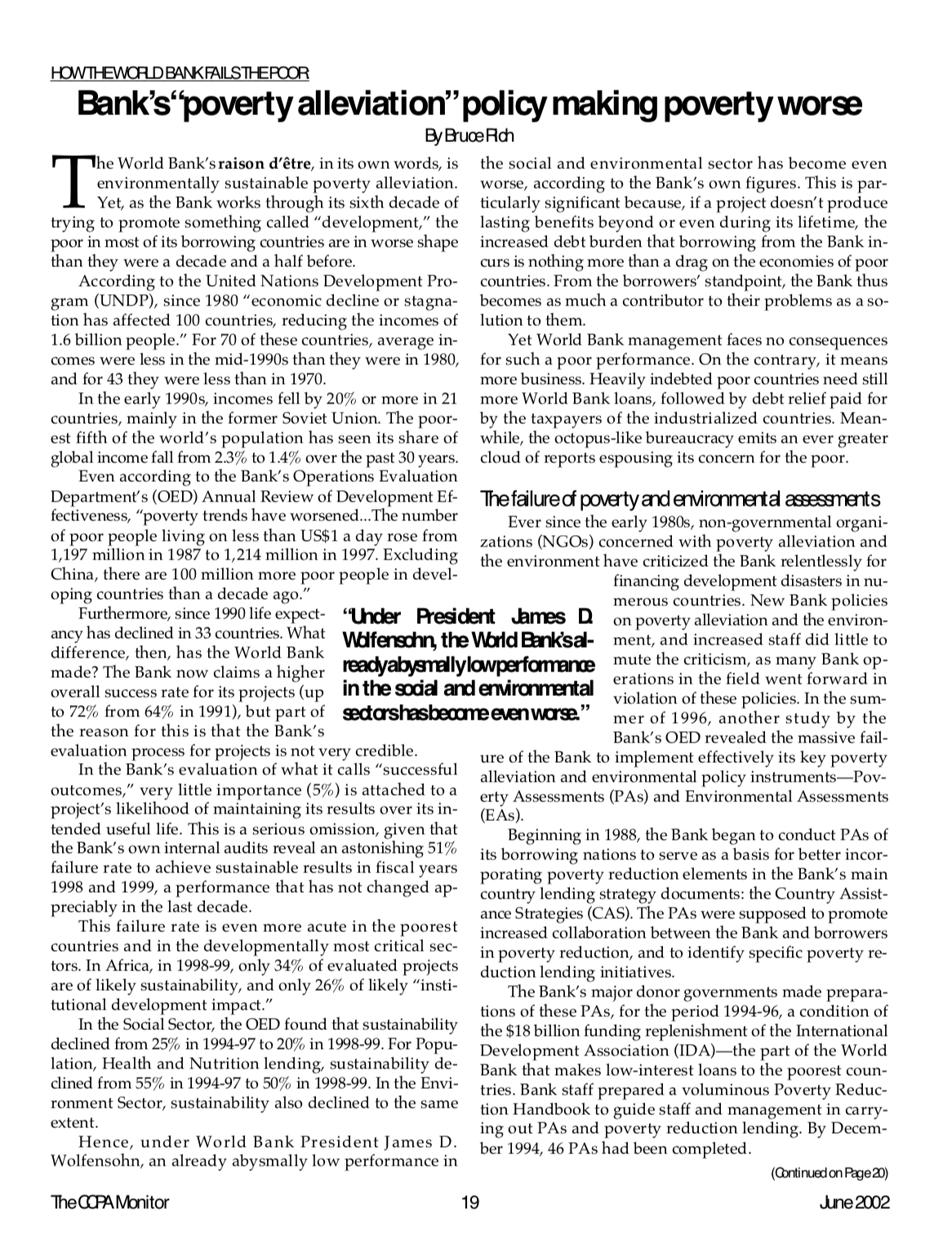- Bruce Rich
- CCPA Monitor, Canadian Centre for Policy Alternatives (CCPA), Ottawa
- June, 2002
- pp. 19-21
The key question is whether the growing use of the Bank’s financial resources to support such corporate investment is really a good or optimal use of public funds to help the poor. The answer, as far as many grassroots development and environmental groups are concerned, is that the growing focus on the private sector is little more than corporate welfare, with little direct connection to improving the lot of the poor. The Bank’s private sector financial services do principally help large corporations, many of them with headquarters in rich donor countries, including some of the largest multinationals on Earth.There is also the disconnect between speeding up loan approval, weakening Bank policies, and claiming to root out the “culture of [loan] approval.”Then there is the widely noted disconnect between claiming to use public funds and guarantees to help the poor and the rapid growth of the IFC and MIGA with a preponderance of clients being large multinational corporations and international money-centre banks. Their activities, moreover, provide little direct economic benefit—and too often a negative social and environmental impact—on poor populations in developing countries. Finallh, the Bank cannot promote improved development effectiveness and be an automatic teller machine for the much-criticized structural adjustment bailout deals of the IMF at the same time. Claims that such loans are effective tools for promoting needed policy reforms in crisis situations are hollow and disingenuous....



